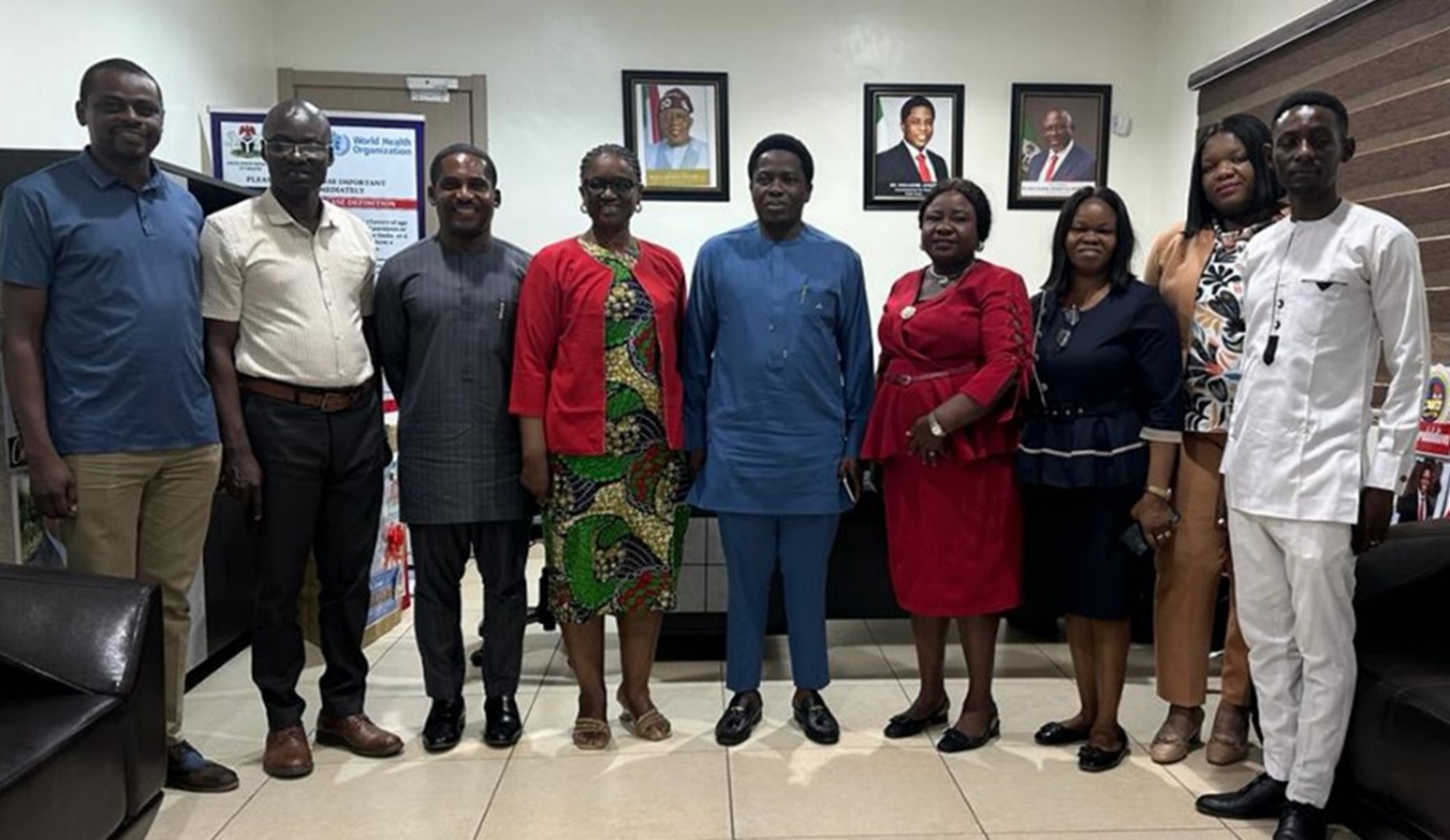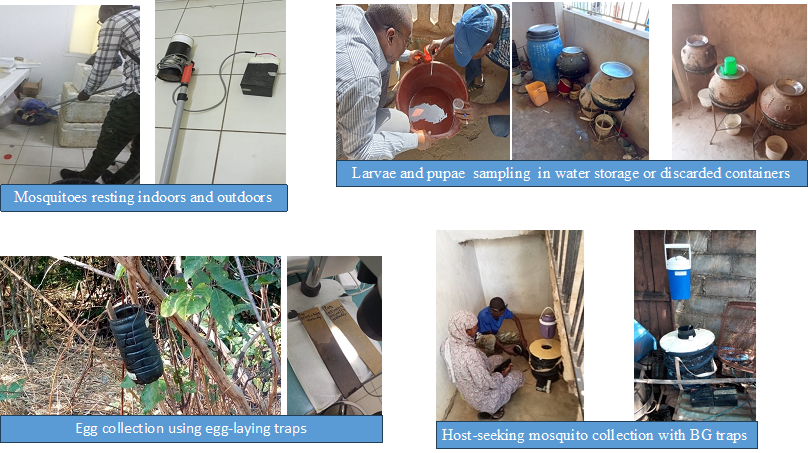Vector-borne diseases (VBDs) such as dengue, yellow fever, and Rift Valley fever have long troubled Africa, with outbreaks becoming more frequent due to climate change. Despite the urgency, many countries in the region lack the real-time data and surveillance needed for effective public health responses. To address this challenge for the West African region, TDR is supporting research led by the Institut Pasteur de Dakar (IPD) in Senegal and the Nigerian Institute of Medical Research (NIMR) to enhance the surveillance and control of VBDs using a One Health approach, which integrates human, animal, and environmental health.

Nigerian Institute of Medical Research (NIMR) scientists on an advocacy visit with Honourable Commissioner of Health Dr Onojaeme Joseph and Permanent Secretary Dr Philomena Okeowo, Delta State Ministry of Health. Photo courtesy of NIMR
The project seeks to bolster Senegal and Nigeria's capacities to prevent, prepare for, and respond to VBD threats. Using a One Health approach, the project analyzes retrospective data on climate, disease prevalence, and mosquito vectors over the past decade. It also conducts research on the spatial distribution and habitat characterization of mosquito vectors in relation to climate change. The initiative emphasizes capacity building, ensuring that health workers across human, animal, and environmental sectors are trained to rapidly detect and respond to VBD outbreaks. Collaboration between regional and national stakeholders is also a priority, aiming to strengthen integrated VBD surveillance.
Engaging key stakeholders in Senegal and Nigeria
In Senegal, the project team has partnered with the National One Health Commission to promote cross-sectoral collaboration. In Nigeria, a three-day stakeholder meeting was held in February 2024 at the Delta State Ministry of Health. The meeting secured support from key health officials and provided access to health data systems such as the District Health Information System 2 (DHIS2).
The Nigerian team also visited local hospitals in Delta State, securing partnerships for sample collection and research collaboration. These efforts ensure that the project is well integrated into existing health infrastructures, enhancing its impact.
Collection and analysis of climate and epidemiological data
A major focus of the project is the collection and analysis of climate and epidemiological data. The Senegal team is mapping 20 years of climate data alongside vector data to understand the link between climate change and VBDs.
Special attention has been given to malaria and dengue using climate and disease models. Human blood samples are also being screened for arboviral diseases in both countries, providing critical insights into the prevalence of these diseases.
Various models are being employed to evaluate and predict the evolution of malaria, dengue, and other arboviruses by analysing their respective climate drivers. For both Senegal and Nigeria, historical rainfall data from 1985 to 2014 has been examined, with projections extending from 2015 to 2050 and future predictions from 2051 to 2080. This analysis includes regional variability in rainfall, peak rainfall patterns, and changes in seasonal distribution, along with temperature trends.
Significant year-to-year fluctuations in temperature anomalies were observed in both countries, suggesting a potential for extreme temperature events. Malaria incidence and projected trends have been mapped for Senegal and Nigeria. Predictive models align historical malaria incidence data with actual incidences from 2013 to 2023 and project periodic peaks in malaria incidence through 2050.
This study underscores the urgent need for adaptive and preventative health policies to address the increasing disease burden in vulnerable areas. It highlights the necessity for cross-sectoral collaboration in implementing climate-resilient health interventions. Continuous monitoring of climate and disease trends is essential for effective disease management.
The details of this work will be presented at the World One Health Congress in Cape Town 19-23 September 2024.
Entomological field work and vector surveillance
Since September 2023, vector sampling has been taking place in both Senegal and Nigeria. Adult mosquitoes resting indoors and outdoors have been collected using a Prokopack Aspirator, while host-seeking mosquitoes were collected using BG-Sentinel traps inside and outside of houses.
Larvae and pupae are being sampled in all water storage or discarded containers and all artificial containers likely to contain water found indoors and outdoors (in the peridomestic environment) at 40 georeferenced houses with ovitraps. The collected eggs have been counted, hatched, and the emerging adults identified, with egg densities assessed over time and space.
Resting and biting behaviours of vectors are also being studied alongside feeding patterns and breeding sites. More than half of the blood meals came from humans. This highlights a significant risk of disease transmission and the need for targeted interventions to reduce the threat of VBDs.

Photo credit: Institut Pasteur de Dakar (IPD)
Next Steps
The project's next phase involves further data analysis and high-level advocacy meetings with Senegal’s National One Health Commission and Nigeria’s technical One Health working committee. These discussions will be critical in translating the project’s findings into actionable policies at national and regional levels. Final results are expected by the end of 2024.
For more information, please contact Dr Corinne Merle.

